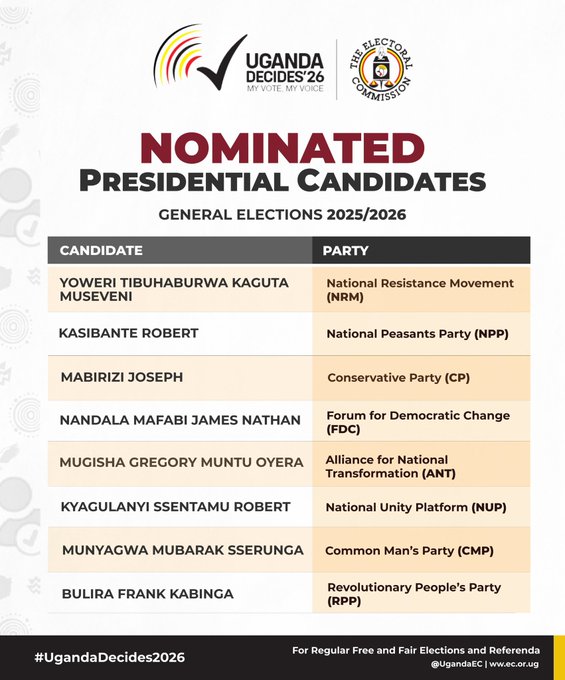- Details
- East Africa
- 316
By JULIUS MBALUTO
Ugandan opposition leader Bobi Wine real name Robert Kyagulanyi and a presidential candidate has said that Ugandans are getting killed during the current campaigns. The opposition leader and his supporters have been blocked by the police from reaching some parts of the country for campaigns and violence was meted out against their supporters.

Uganda votes on 15th January 2026. The Electoral Commission Uganda between 23rd and 24th September 2025 cleared seven presidential candidates to vie for the top seat. Among the top runners is President Museveni who is keen to extend his rule of 39 years to over 40 years.
The would have been a key contender in this election was Dr Kizze Bisigye but he has been detained facing treason charges. Dr Kizze Bisigye contested and lost four elections against President Museveni. Like Bobi Wine, he was kept under house arrest during campaigns. Uganda before Tanzanian election witnessed closure of social media in previous elections.
Uganda's elections on 15th January 2026 will be a day of reckoning for President Museveni's rulership but will this change anything? Ugandans have eight presidential candidates to choose from namely, President Yoweri Museveni (NRM), Kasibante Robert (NPP), Mabirizi Joseph(CP), Nandala Mafabi James Nathan (FDC), Migisha Gregory Muntu Oyera (ANT), Kyagulanyi Robert Ssentamu (NUP), Munyagwa Mubarak Sserunga (CMP), Bulira Frank Kabinga (RPP).







